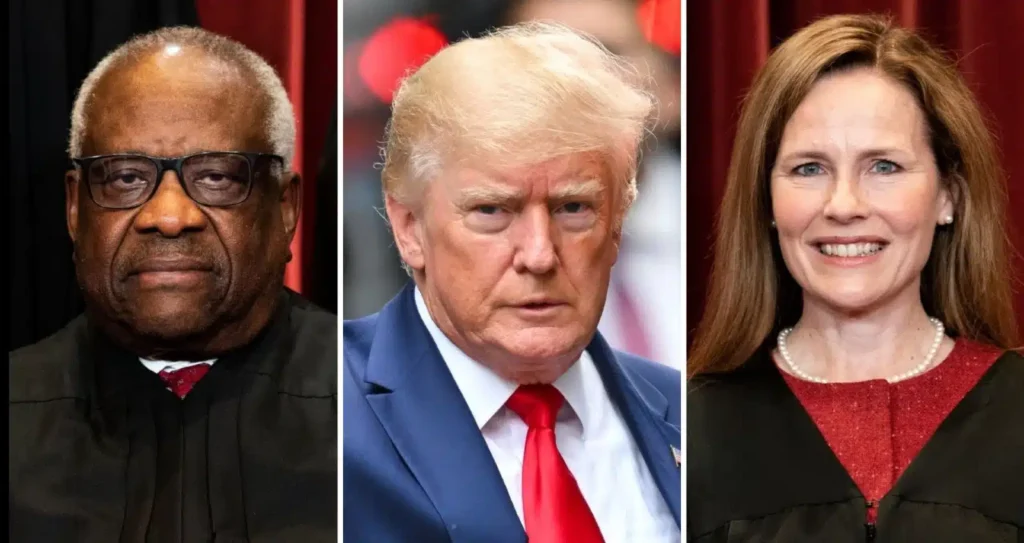The U.S. Supreme Court handed former President Donald Trump another major victory, this time in the case filed against him by special counsel Jack Smith in the District of Washington D.C. involving charges related to alleged actions taken on and before the Jan. 6, 2021, riot at the U.S. Capitol Building.
Justices remanded the case back to the US Court of Appeals for the District of Columbia Circuit for further proceedings following the high court’s ruling in July that presidents enjoy broad immunity while in office. The justices’ ruling vacated an earlier decision in the case by U.S. District Judge Tanya Chutkan, an Obama appointee, who denied Trump’s motion to drop the case base on presidential immunity.
“On consideration whereof, it is ordered and adjudged by this Court that the judgment of the above court is vacated with costs, and the case is remanded to the United States Court of Appeals for the District of Columbia Circuit for further proceedings consistent with the opinion of this Court,” read the document from the Supreme Court, obtained by journalist Julie Kelly. The Supreme Court ruling also states Trump must be compensated $3,232.80 in court costs.
IT IS OFFICIAL
SCOTUS ruling in Trump v US sent back to DC appellate court. Both the DC circuit opinion and Judge Chutkan’s order denying presidential immunity from prosecution vacated.
And Pres Trump gets some money back lol pic.twitter.com/XIZCwiMUpG
— Julie Kelly ?? (@julie_kelly2) August 2, 2024
The Supreme Court clarified on July 1 that a former president has absolute immunity for core constitutional powers but not for unofficial acts in a 6-3 ruling. The opinion emphasized that the lower court must determine “whether a prosecution involving Trump’s attempts to influence the Vice President’s oversight of the certification proceeding in his capacity as President of the Senate would pose any dangers of intrusion on the authority and functions of the Executive Branch.”
“The President enjoys no immunity for his unofficial acts, and not everything the President does is official,” the opinion stated. “The President is not above the law. But Congress may not criminalize the President’s conduct in carrying out the responsibilities of the Executive Branch under the Constitution. And the system of separated powers designed by the Framers has always demanded an energetic, independent Executive. The President therefore may not be prosecuted for exercising his core constitutional powers, and he is entitled, at a minimum, to a presumptive immunity from prosecution for all his official acts. That immunity applies equally to all occupants of the Oval Office, regardless of politics, policy, or party.”
A landmark decision by the Supreme Court last month could lead to reduced sentences for individuals in prison or facing charges related to the January 6th, 2021 Capitol riots, including former President Donald Trump. In a 6-3 decision, the justices ruled that the Department of Justice exceeded its authority by charging hundreds of protesters with obstructing official congressional proceedings on the day Congress met to certify the 2020 election results.
Defendants and their attorneys had argued for over three years that the federal statutes used against them were too vague, as they described crimes involving tampering with documents or resources, not merely unlawful entry into the Capitol. However, the majority of justices indicated that obstruction charges could apply if rioters were found guilty of physically interfering with the delivery of the states’ Electoral College certifications to the House floor, CNN reported at the time.



